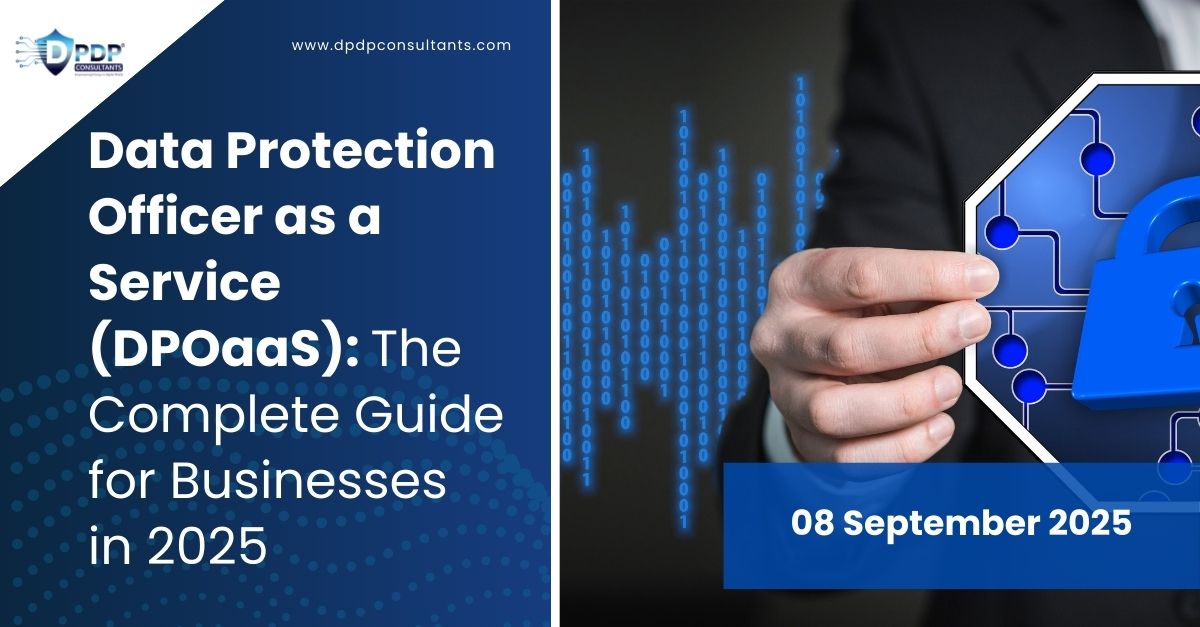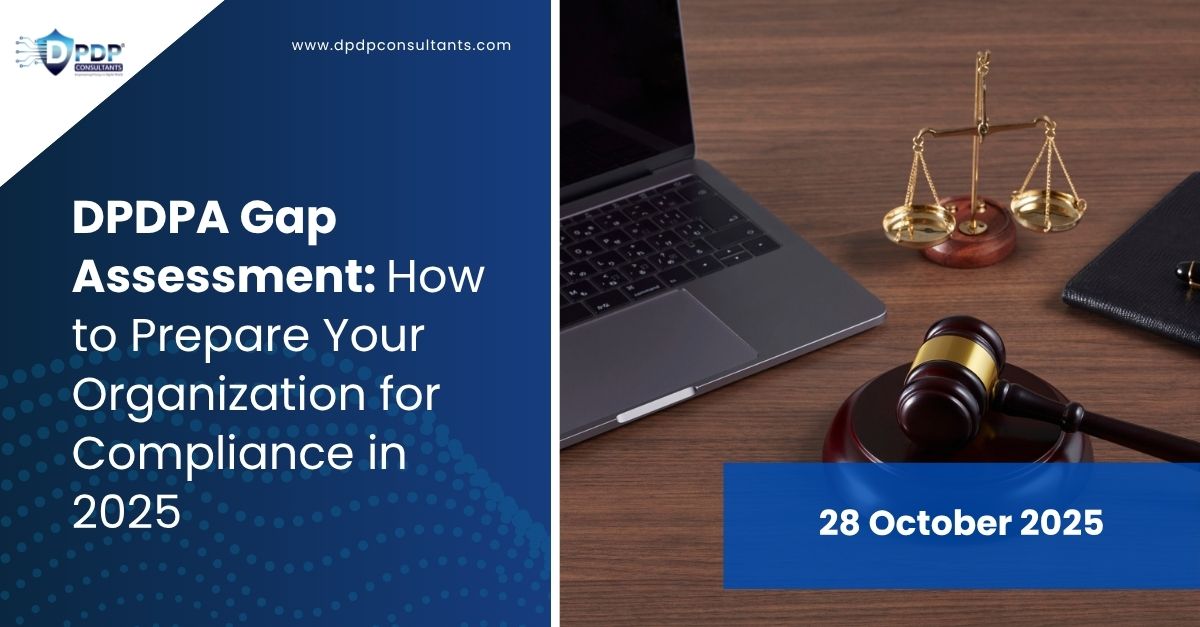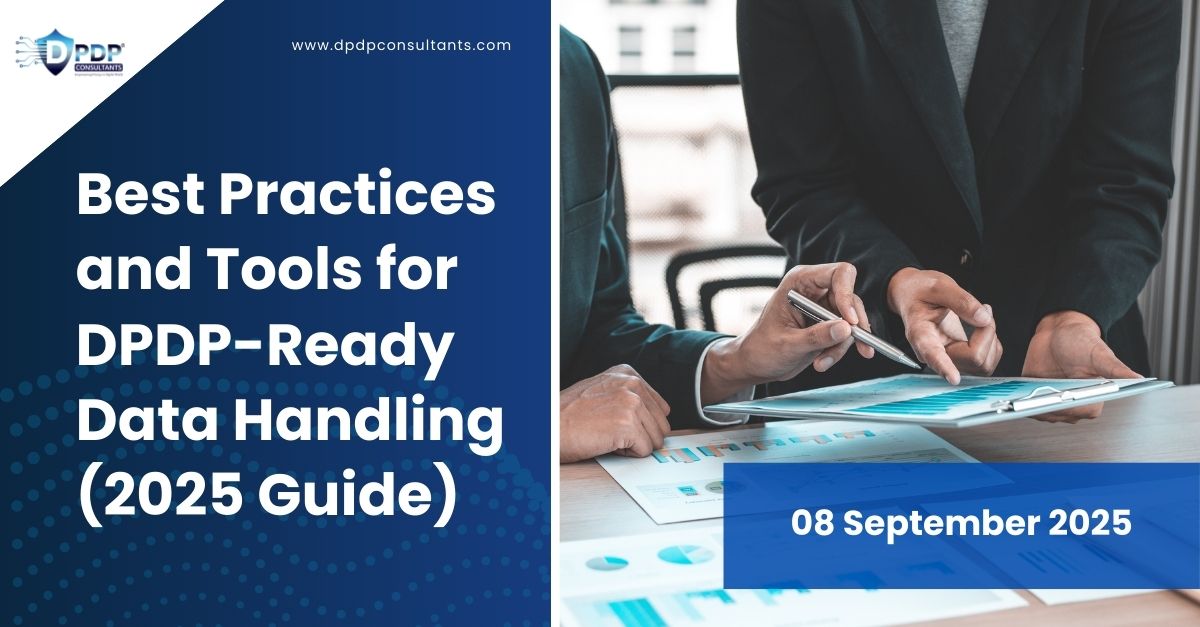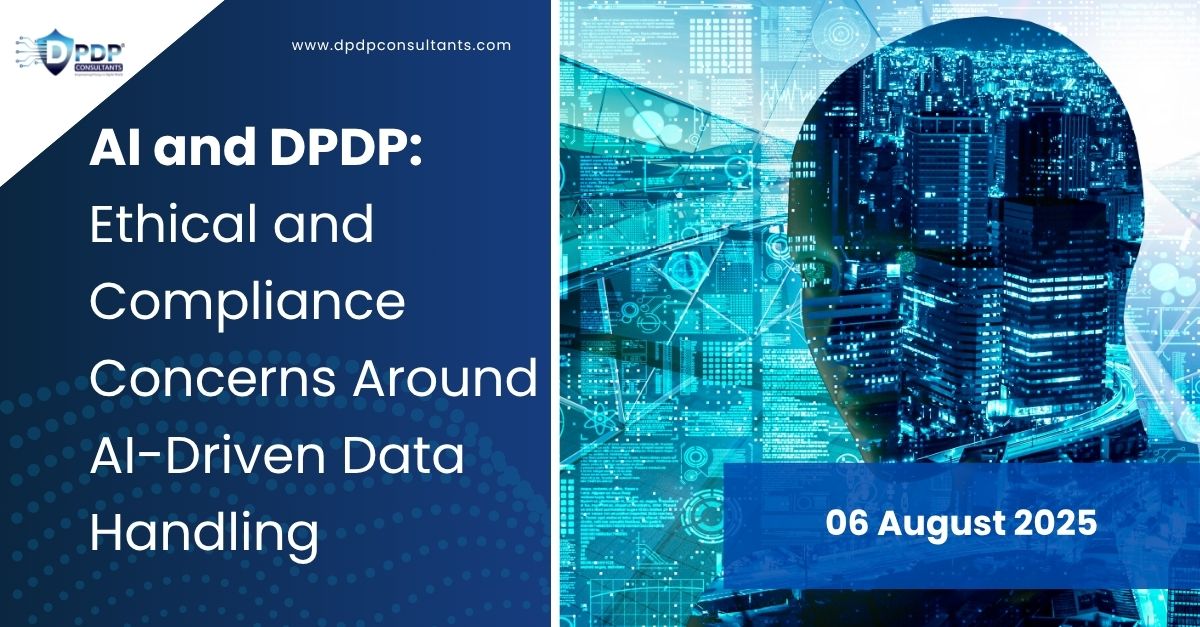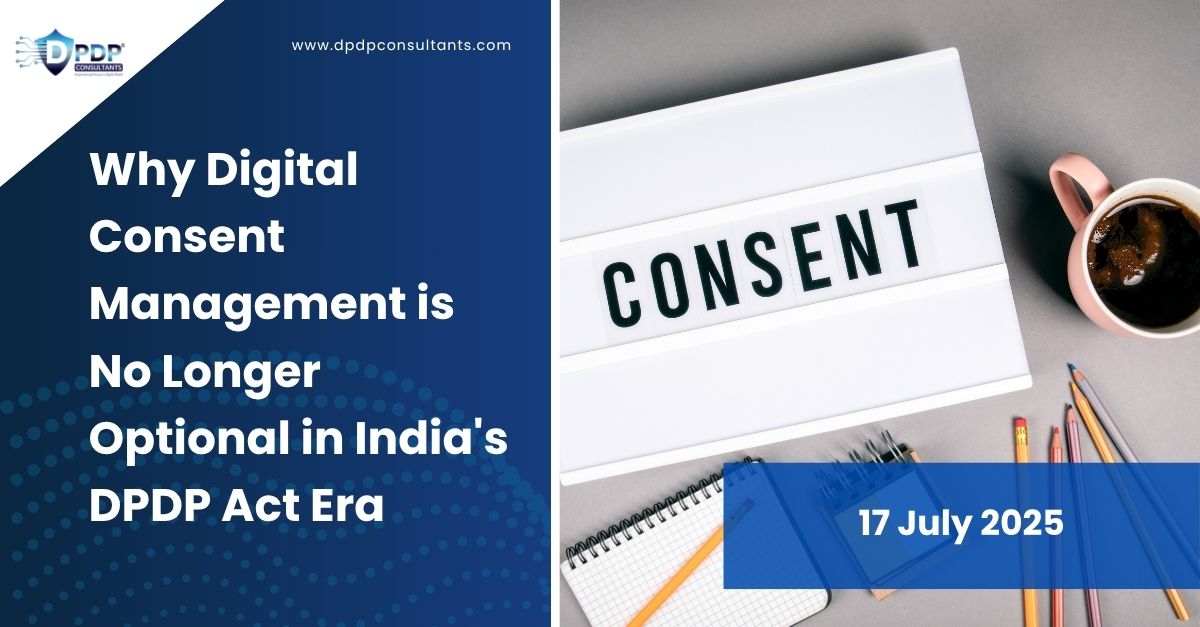Introduction: Why Data Protection Has Become a Business
Imperative
Every modern business, whether a tech-driven SaaS startup
in Bengaluru or a global bank in London, runs on data. Customer
interactions, employee records, transaction histories, supply chain data—all of
it powers growth.
But here’s the reality: the same data that drives
innovation also attracts risk. Data breaches, ransomware attacks, insider
leaks, and compliance violations are now boardroom-level concerns.
Governments have taken notice too. Regulations such as the EU’s
GDPR, India’s Digital Personal Data Protection (DPDP) Act, 2023, Brazil’s
LGPD, and the US CCPA/CPRA are redefining how businesses handle
personal information.
One requirement stands out in all these frameworks: the need
for a Data Protection Officer (DPO).
The challenge? Most businesses cannot justify the cost of a
full-time DPO or find it difficult to recruit professionals with the right
blend of legal expertise, cybersecurity knowledge, and regulatory experience.
This is where Data Protection Officer as a Service
(DPOaaS) comes in—an elegant solution that combines affordability,
flexibility, and global expertise.
What Exactly is a Data Protection Officer (DPO)?
A Data Protection Officer is not just a compliance
checkbox. Think of them as your privacy strategist, compliance advisor, and
risk manager—all rolled into one.
The DPO’s Core Responsibilities
|
Role
|
Responsibilities
|
Why It
Matters
|
|
Compliance
Leader
|
Ensure
adherence to GDPR, DPDP Act, HIPAA, etc.
|
Prevents
heavy fines and legal risks.
|
|
Advisor to
Management
|
Guide
leadership and staff on privacy obligations.
|
Embeds data
protection into company culture.
|
|
Trainer
|
Conduct
awareness sessions for employees.
|
Reduces human
error, the #1 cause of data breaches.
|
|
Risk
Assessor
|
Conduct DPIAs
and risk assessments.
|
Helps
businesses launch products safely.
|
|
Authority
Liaison
|
Engage with
regulators and supervisory bodies.
|
Builds
credibility and transparency.
|
|
Incident
Responder
|
Manage
breaches, complaints, and requests.
|
Ensures quick
recovery and reduces reputational loss.
|
📌 In essence, a DPO is
the organization’s “privacy conscience”—ensuring the company uses data
responsibly while staying compliant.
Why Businesses Need a DPO in 2025
In the early 2010s, companies saw compliance as a legal
necessity. Today, it is a competitive differentiator. Customers and
partners are increasingly asking one question before engaging: “Can we trust
you with our data?”
Key Reasons a DPO is Indispensable Today
- Mandatory
Under Law
- GDPR
Article 37 mandates DPOs in certain cases.
- India’s
DPDP Act requires Data Fiduciaries to appoint DPOs for large-scale or
sensitive data processing.
- Penalties
are Steep
- GDPR
fines: up to €20M or 4% of annual turnover.
- DPDP
Act fines: up to ₹250 crore (~$30 million).
- Cyber
Threats are Growing
- Breaches
are now measured in minutes, not months.
- Insider
errors (like sending the wrong email attachment) are as damaging as
external hacks.
- Trust
is Currency
- Consumers
increasingly choose brands that respect privacy.
- A
visible commitment to compliance builds lasting loyalty.
- Operational
Efficiency
- Proactive
compliance prevents project delays and regulatory hurdles.
💡 A DPO is no longer just
a regulatory necessity—it is a business enabler.
The Hiring Dilemma: Why Full-Time DPOs Are Hard to
Sustain
Despite its importance, many organizations struggle to
maintain an in-house DPO.
|
Challenge
|
Why It’s a
Problem
|
|
Scarcity
of Talent
|
DPOs must
combine legal, technical, and business skills—rare to find.
|
|
High Costs
|
Annual
salaries for senior DPOs exceed $100,000 in many markets.
|
|
Scalability
|
SMEs may not
need a DPO on payroll year-round.
|
|
Conflict
of Interest
|
Internal
roles may clash with the independence regulators expect.
|
|
Rapidly
Evolving Laws
|
Hard for one
individual to track global changes across multiple jurisdictions.
|
👉 This has opened the
door for a smarter alternative: outsourcing the role via DPOaaS.
What is DPO as a Service (DPOaaS)?
DPOaaS is an outsourced offering where a third-party
provider acts as your Data Protection Officer. Instead of hiring one person,
you gain access to a team of privacy experts who collectively fulfill
all DPO responsibilities.
Why This Model Works
- Flexible
engagement models (monthly, annual, project-based).
- Independent
oversight with no conflict of interest.
- Multi-regional
expertise across GDPR, DPDP, HIPAA, CCPA, and more.
- Cost
efficiency—fraction of a full-time hire.
- Scalable
support for startups, SMEs, and large enterprises alike.
Benefits of DPOaaS
|
Benefit
|
Business
Value
|
|
Cost-Effective
|
Access
senior-level expertise without full-time salary overheads.
|
|
Expertise
on Demand
|
Certified
privacy experts available as needed.
|
|
Global
Coverage
|
Compliance
with multiple regulations simultaneously.
|
|
Unbiased
Oversight
|
External DPOs
maintain independence.
|
|
Scalability
|
Grow or
shrink services as your business evolves.
|
|
Proactive
Risk Management
|
Reduced
likelihood of fines, breaches, and reputational loss.
|
|
Trust
& Transparency
|
Signals
customers and partners that you take privacy seriously.
|
How DPOaaS Works
Here’s a typical engagement model for businesses:
📊 Step-by-Step
Workflow
- Initial
Assessment – Reviewing your organization’s data ecosystem.
- Gap
Analysis – Identifying compliance risks and vulnerabilities.
- Policy
Development – Drafting data protection policies, SOPs, and consent
management systems.
- Implementation
Support – Training employees, setting up grievance redressal
mechanisms.
- Ongoing
Monitoring – Regular audits, compliance reporting, and breach
simulations.
- Regulatory
Liaison – Acting as the formal contact with authorities.
- Incident
Management – Responding swiftly to breaches and customer complaints.
Industries That Benefit Most from DPOaaS
While every sector needs data protection, some industries
face heightened risks and obligations.
|
Industry
|
Why DPOaaS
is Essential
|
|
Healthcare
|
Sensitive
patient data, HIPAA and DPDP compliance.
|
|
Banking
& Finance
|
Managing KYC,
transactions, and fraud risks.
|
|
E-commerce
|
Handling
millions of customer records and payment data.
|
|
IT &
SaaS
|
Managing
client data across geographies.
|
|
EdTech
|
Protecting
minors’ data and online learning records.
|
|
Manufacturing
& IoT
|
Securing
employee and machine-generated data.
|
How to Choose the Right DPOaaS Provider
The market is growing fast, but not all providers are equal.
Evaluate vendors on:
- Certifications
& Credentials – Look for CIPP/E, CIPM, ISO 27001, ISO 27701.
- Industry
Experience – Case studies in your sector.
- Jurisdictional
Knowledge – Coverage of GDPR, DPDP, HIPAA, etc.
- Flexibility
– Ability to scale up or down.
- Technology
Stack – Consent management, DPIA automation, breach dashboards.
- Round-the-Clock
Availability – Critical for global operations.
- Reputation
– References and testimonials from existing clients.
Future Trends in DPOaaS
- AI-Driven
Compliance Monitoring – Automating risk detection and breach alerts.
- Industry-Specific
Models – Tailored DPOaaS for healthcare, BFSI, EdTech.
- Hybrid
DPO Models – In-house privacy teams supported by external experts.
- Rising
Adoption in India – Driven by DPDP Act enforcement.
- Integration
with Cybersecurity – DPOaaS bundled with SOC and penetration testing.
FAQs About DPOaaS
Q1. Is a DPO mandatory for all companies?
Not for all. It is required if you process large-scale personal data, sensitive
categories, or engage in profiling.
Q2. How is DPOaaS different from legal consulting?
Consultants advise, but DPOaaS takes ongoing responsibility, acts as
your regulator contact, and implements privacy programs.
Q3. How much does it cost?
Depends on your size and needs. Generally, 40–60% cheaper than hiring a
full-time DPO.
Q4. Can startups use DPOaaS?
Absolutely. Startups and SMEs benefit the most since they cannot always afford
in-house privacy officers.
Q5. Does DPOaaS help with breach response?
Yes. Providers assist with incident management, reporting obligations, and
communications.
Conclusion: DPOaaS as a Strategic Advantage
In a world where data is both an asset and a liability,
protecting it is no longer optional. Appointing a DPO is not just about ticking
a compliance box—it is about building resilience, trust, and competitive
advantage.
For companies that cannot sustain a full-time DPO, DPOaaS
offers the best of both worlds:
- Affordable
access to world-class privacy expertise.
- Independent
oversight trusted by regulators.
- Scalability
to match business growth.
Data Protection Officer as a Service (DPOaaS) is more
than a compliance tool. It is a business strategy for the digital age—helping
organizations thrive securely in 2025 and beyond.
📌 SEO Metadata (Ready for Publishing)
- Meta
Title: Data Protection Officer as a Service (DPOaaS) – Complete 2025
Guide
- Meta
Description: Discover how Data Protection Officer as a Service
(DPOaaS) helps businesses meet GDPR, DPDP Act, and global compliance
requirements. Cost-effective, expert-driven, and scalable.
- Keywords:
DPO as a Service, DPOaaS, Outsourced DPO, Data Protection Officer, GDPR
compliance, DPDP Act compliance, Privacy Officer service.
Read out more such article on DPDP
Consultants

